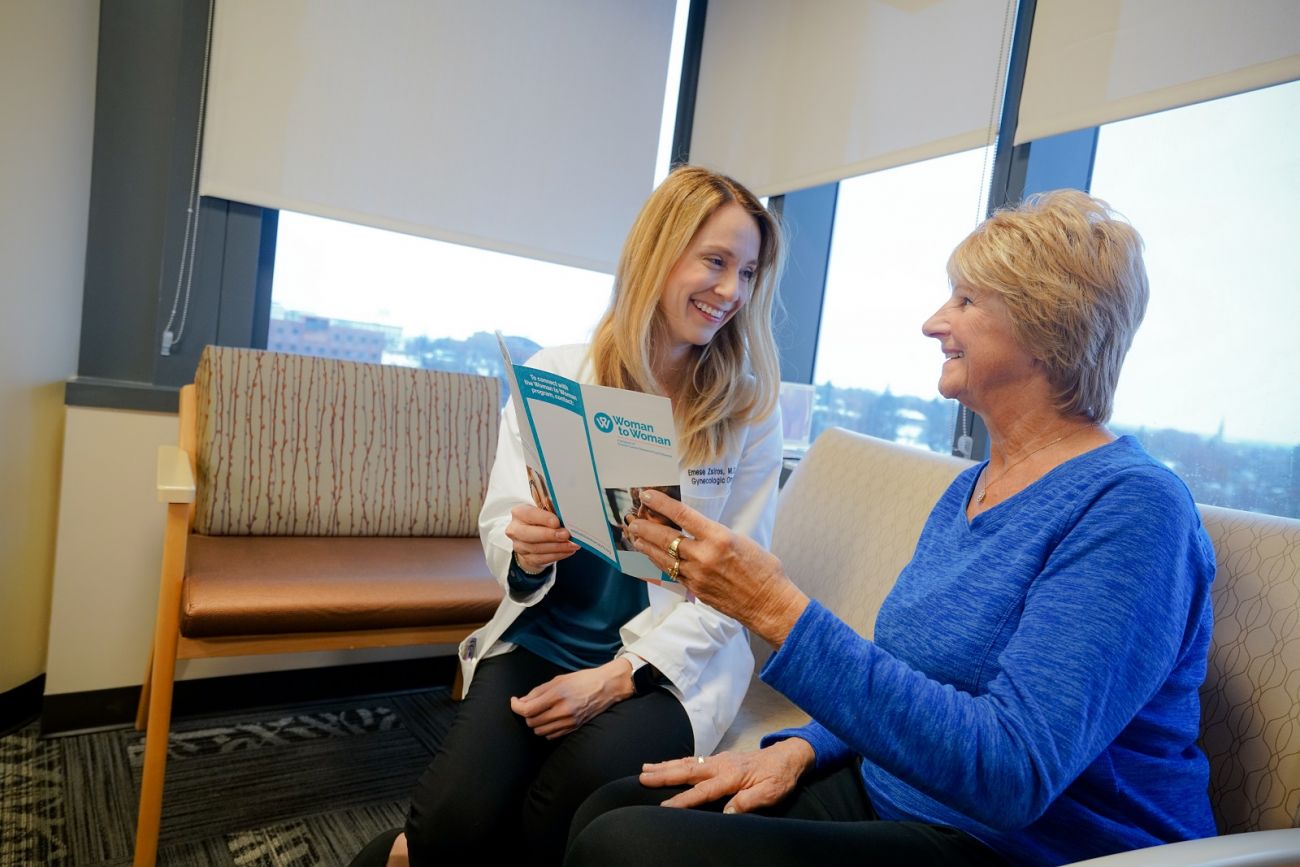Risk factors
Vulvar cancer is highly treatable when it is detected early. Knowing the risk factors as well as the symptoms of the disease is a critical step in early detection. The risk factors for developing vulvar cancer include:
Cancer screening
Screening tests detect cancer’s hidden warning signs long before symptoms appear and when the disease is most treatable. Understand your screening needs and complete the cancer screening and prevention questionnaire to manage your cancer risk.
- Increasing age: The risk of vulvar cancer increases with age, though it can occur at any age. The average age at diagnosis is 65.
- Exposure to human papillomavirus (HPV): HPV is a sexually transmitted disease that increases the risk of several cancers, including vulvar cancer and cervical cancer. Many young, sexually active women are exposed to HPV, but for most the infection goes away on its own. For some, the infection causes cell changes and increases the risk of cancer in the future.
- Smoking: Smoking cigarettes increases the risk of vulvar cancer.
- Being infected with the human immunodeficiency virus (HIV): This sexually transmitted virus weakens the immune system, which may make you more susceptible to HPV infections, thereby increasing your risk of vulvar cancer.
- Having a history of precancerous conditions of the vulva: Vulvar intraepithelial neoplasia (VIN) is a precancerous condition that increases the risk of vulvar cancer. Most women with vulvar intraepithelial neoplasia will never develop cancer, but a small number do go on to develop invasive vulvar cancer. For this reason, your doctor may recommend treatment to remove the area of abnormal cells and periodic follow-up checks.
- Having a skin condition involving the vulva: Lichen sclerosus, which causes the vulvar skin to become thin and itchy, increases the risk of vulvar cancer.
Not all women who develop vulvar cancer will have one of these risk factors. And those who have multiple risk factors may never develop vulvar cancer. That’s why it’s up to you to be aware of your health history and what is normal for your body. If you experience any of the symptoms of vulvar cancer or feel you are at an increased risk based on the list above, talk to your doctor.
